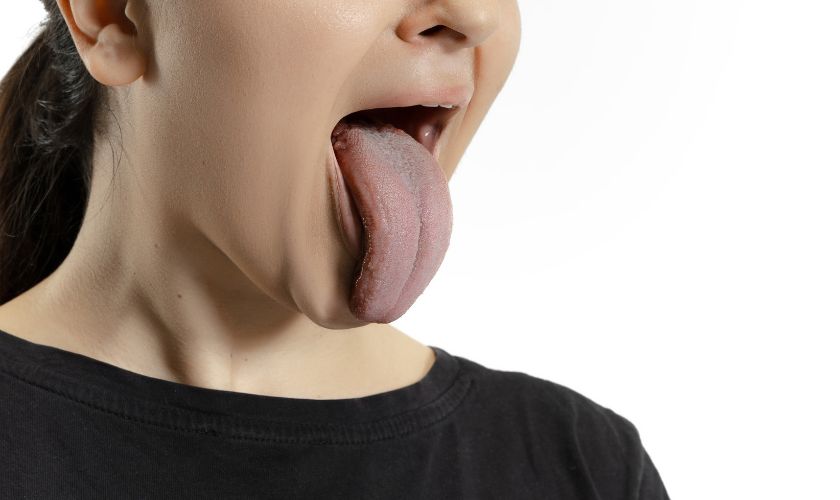
Hello there! Have you ever experienced the embarrassment of bad breath? Whether after enjoying a delicious meal, waking up in the morning, or throughout the day, halitosis can be an unpleasant and uncomfortable experience. Not only does it affect your self-confidence, but it can also impact your personal and professional relationships. The good news is that oral hygiene plays a significant role in preventing and treating halitosis. This blog post will explore the significance of maintaining proper oral hygiene to avoid bad breath.
Good oral hygiene is important for preventing and treating halitosis. Regularly brushing and flossing your teeth helps remove food particles and plaque, which can cause bad breath. Mouthwashes and tongue scrapers can also help remove bacteria and other debris from your mouth, freshening your breath.
If you suffer from chronic bad breath, it could indicate a more serious underlying issue such as gum disease or tooth decay. In these cases, seeing a dentist or doctor for treatment is essential.
Bad breath, also called halitosis, is a condition that several things can cause.
Under-cared dental hygiene is one of the primary causes of foul breath. When you don’t brush and floss frequently, food particles can build up on your teeth and cause bacteria to grow. It can lead to an unpleasant odor.
Other causes of bad breath include eating certain foods (such as garlic or onions), smoking cigarettes, and having a dry mouth.
If you are suffering from bad breath, treatments available can help. Proper dental hygiene is the finest way to prevent bad breath. Religiously brush your teeth at least twice daily and floss once daily. You may also want to use a tongue scraper to remove bacteria from your tongue. If you have a dry mouth, try chewing sugar-free gum or sucking on sugar-free hard candy to help increase saliva production. Over-the-counter products can also help treat bad breath, such as mouthwashes and mints. If you still can’t get rid of your bad breath, see your dentist or doctor for additional treatment options.
Poor oral hygiene is a glaring cause of halitosis or bad breath. When food particles and bacteria are permitted to build up on the teeth and tongue, they can produce foul-smelling compounds that give rise to bad breath. Brushing and flossing regularly can help remove these deposits and prevent halitosis. In addition, using a tongue scraper or mouthwash can also help reduce bacteria levels and freshen your breath.
There are a few common treatments for halitosis.
1. The first is to brush and floss your teeth regularly. It will help remove food particles and bacteria from your mouth that can give rise to bad breath.
2. In addition, it would help if you tried to scrape your tongue with a scraper or toothbrush to remove any bacteria buildup.
3. Another standard halitosis treatment is using mouthwash. Mouthwash can help destroy bacteria and freshen your breath. Be sure to choose a mouthwash that contains fluoride to help prevent tooth decay.
If you are still struggling with bad breath, you may need to visit your dentist for a professional cleaning. During this cleaning, your dentist will remove any plaque or tartar buildup on your teeth. They may also recommend other treatments, such as antibacterial mouthwashes or gum disease treatment.
Several natural remedies can help to prevent and treat halitosis. These include:
1. Brushing and flossing your teeth regularly. It will help to remove food particles and bacteria from your mouth, which can cause bad breath.
2. Using a tongue scraper. It can help remove bacteria and debris from your tongue, contributing to bad breath.
3. Drinking plenty of water. It will help to keep your mouth hydrated and flush out toxins that could cause bad breath.
4. Having sugar-free gum or sucking on sugarless hard candy. It stimulates saliva production, which can help to keep your mouth clean and bacteria-free.
5. Avoid foods that cause bad breath. These include garlic, onions, spicy foods, and tobacco products.
You can consider a few of the things mentioned below to improve your oral hygiene and help prevent or treat halitosis:
1. Brush your teeth at least two times per day and floss daily. It will help remove food particles and bacteria from your teeth and gums.
2. Scrape your tongue with a scraper or brush to remove bacteria buildup.
3. Drink lots of water daily to remain hydrated and wash away any lingering bacteria in your mouth.
Following these simple tips can help improve your oral hygiene and reduce your risk of bad breath.
In conclusion, good oral hygiene can be vital in preventing and treating halitosis. Brushing your teeth, flossing regularly, using an antiseptic mouthwash, and visiting your dentist for regular check-ups are all essential steps in helping to prevent bad breath. If you already suffer from halitosis, incorporating these measures into your daily routine should help reduce the severity of the condition so you can enjoy fresher breath once more.